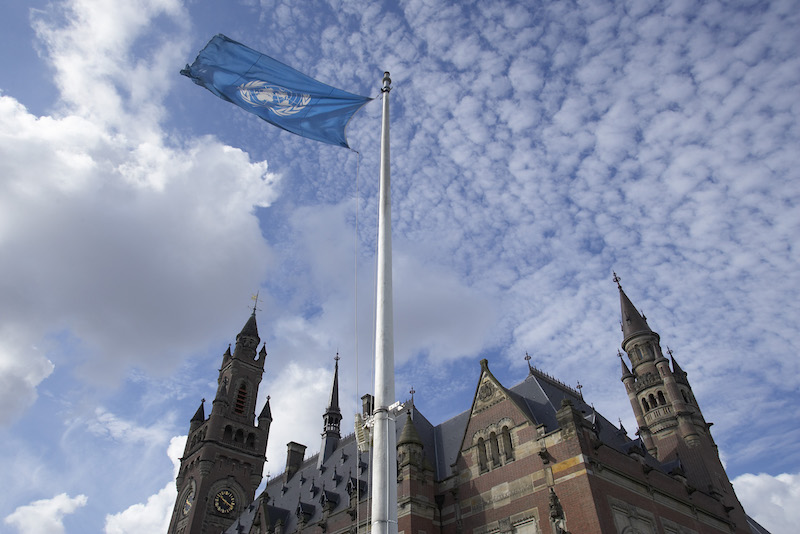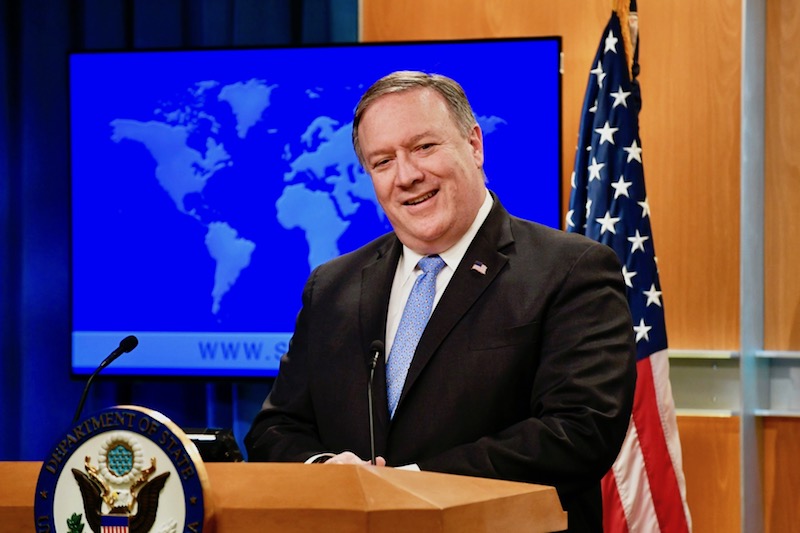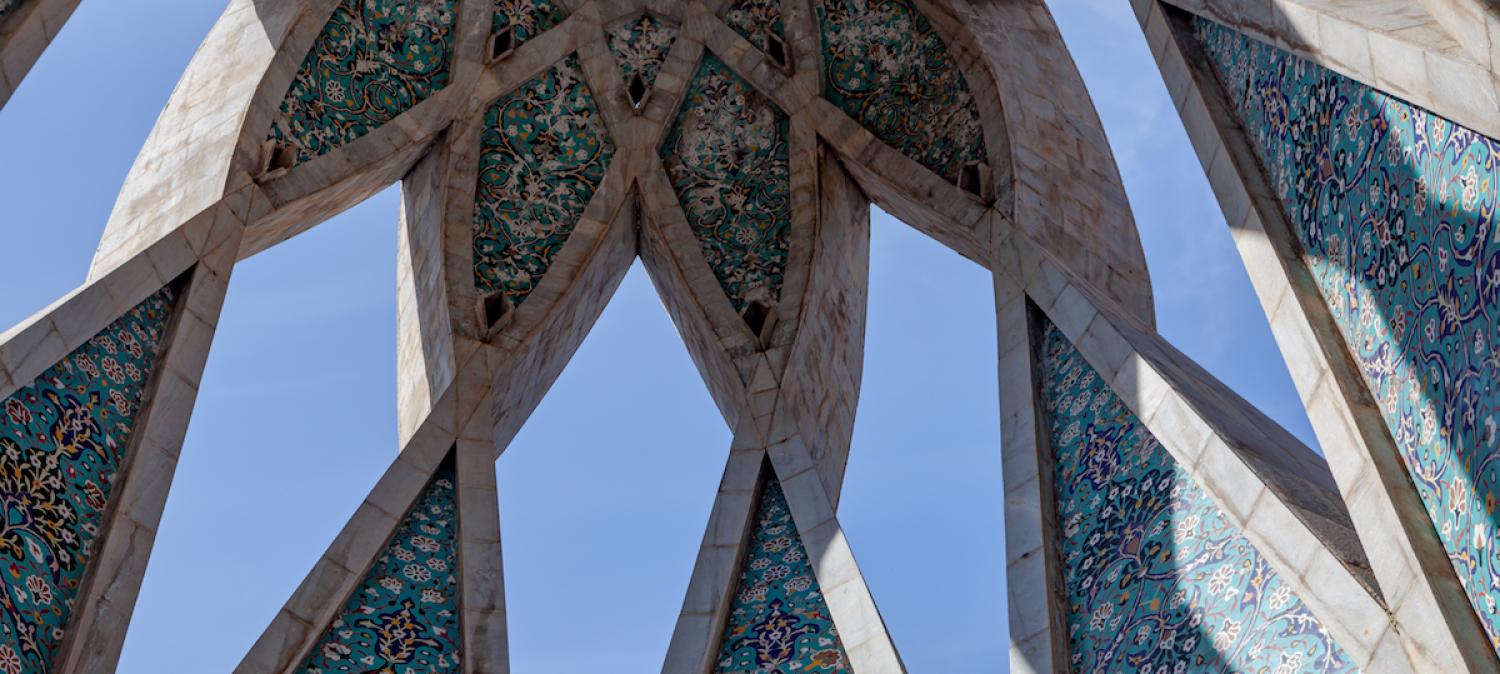For all the talk about the broken nuclear deal, it might seem a surprise to learn of an old agreement between the United States and Iran that is still in force.
The move to dismantle international agreements only makes diplomacy harder and belligerence easier.
The US-Iran Treaty of Amity, Economic Relations, and Consular Rights was signed on 15 August 1955 two years after the coup in Iran. The aim was to solidify the young Shah’s position domestically, while advancing US political and economic power in Iran.
Ever since, this little-known treaty remained the only valid and working legal framework for US-Iranian bilateral relations, despite the absence of any true “amity” between them.
What remains fascinating is the dispute resolution aspect of this treaty. Clause 2 of Article XXI allows either of the parties to take a dispute to the International Court of Justice (ICJ), if diplomacy or consensus fails to result in satisfactory outcome.
After November 1979, when the American Embassy hostage crisis erupted, the US took Iran to the international court on the basis on the treaty. The ICJ condemned Iran for holding 52 American diplomats and citizens hostage for 444 days. In 1980, Iran completely disregarded the ruling of the ICJ to release all American hostages.
Eight years later, the warship USS Vincenness shot down an Iran-Air Flight 655 over the Persian Gulf, killing 290 passengers and crew members. In May 1989, Iran sued the US in the ICJ over the shoot down, citing the 1955 treaty. The ICJ ruled in favour of Iran and ordered the US to pay compensation to the families of Iranian victims. Interestingly, then US president Ronald Reagan offered Iranians to settle the issue outside of the court.

In 2016, Iran filed a lawsuit at the ICJ against the freezing of around $2 billion of Iranian assets abroad after the US Supreme Court ruled that the frozen Iranian assets must be turned over to the families of American victims of alleged terror attacks (an allegation strongly rebutted by Iran). The first public hearing session of this case took place on 8 October, 2018, at Peace Palace in The Hague.
The US does not have diplomatic relations with Iran, but through the existing Treaty of Amity, has managed to settle (or at least discuss) complex issues with it. The role of the treaty in resolving unfriendly and hostile disputes between the two countries is made valid, at least in part, by the ICJ's repeated citation of the 1955 agreement. Despite ignoring the court’s verdict on Iran, the two rivals concurred on the 1955 treaty as a means of conflict management.
Earlier this month, the ICJ also handed Iran a profound diplomatic victory. The court found that the re-imposition of US sanctions after President Donald Trump withdrew from the landmark 2015 Joint Comprehensive Plan of Action was in violation of the nuclear deal. The ruling followed a formal complaint by Iran to the ICJ in July, again citing the 1955 treaty.
The ICJ ordered the US to refrain from violating the nuclear deal and to stop imposing sanctions on humanitarian goods, trade, food, medicine, and civil aviation. The ICJ’s ruling cannot be appealed and is binding, yet the court also has no power or means of enforcing it.
The US reacted by announcing it would withdraw from the 1955 treaty.

Secretary of State Mike Pompeo made clear that the US would also ignore the court’s ruling. Immediately afterwards, National Security Advisor John Bolton went even further and announced that President Donald Trump had decided the US “will withdraw from the optional protocol and dispute resolution to the Vienna Convention on diplomatic relations.”
This unilateral move to dismantle international agreements only makes diplomacy harder and belligerence easier.
The ICJ ruled that:
Both parties [Iran and the US] shall refrain from any action which might aggravate or extend the dispute before the Court or make it more difficult to resolve.
Yet the unilateral withdrawal by the US from both bilateral and multilateral treaties erodes the hope of resolving disputes and differences diplomatically.
It is also a missed opportunity. While Trump is struggling to mobilise international pressure against Iran, especially in efforts to freezes Iran’s oil export, this ruling could have been used as a face-saving pretext for the US to backtrack from costly oil sanctions due to be imposed in November.
In specific terms, according to Article XXIII of the 1955 treaty, if either party sought to withdraw, it requires written notice to the other party of one year to come to effect.
But the US actually has little to lose by staying within the structure of 1955 Amity Treaty, and indeed much to gain. Contrary to Trump’s assertion at the United Nations General Assembly last month that:
We must protect our sovereignty and our cherished independence above all.
In fact, the ICJ’s ruling has no means to impose global governance and international law over the US constitutional law and sovereignty. There are no legal sanctions for failing to abide by the ICJ’s ruling.
And given the US wields a veto at the table of the UN Security Council, it has little to fear from international censure.
Yet the decision to walk away from the treaty and broader dispute resolution does carry a cost. American diplomats could find themselves at a disadvantage in international settings if other countries take action to balance the scales and fill the US void in the international courts such as the ICJ.

